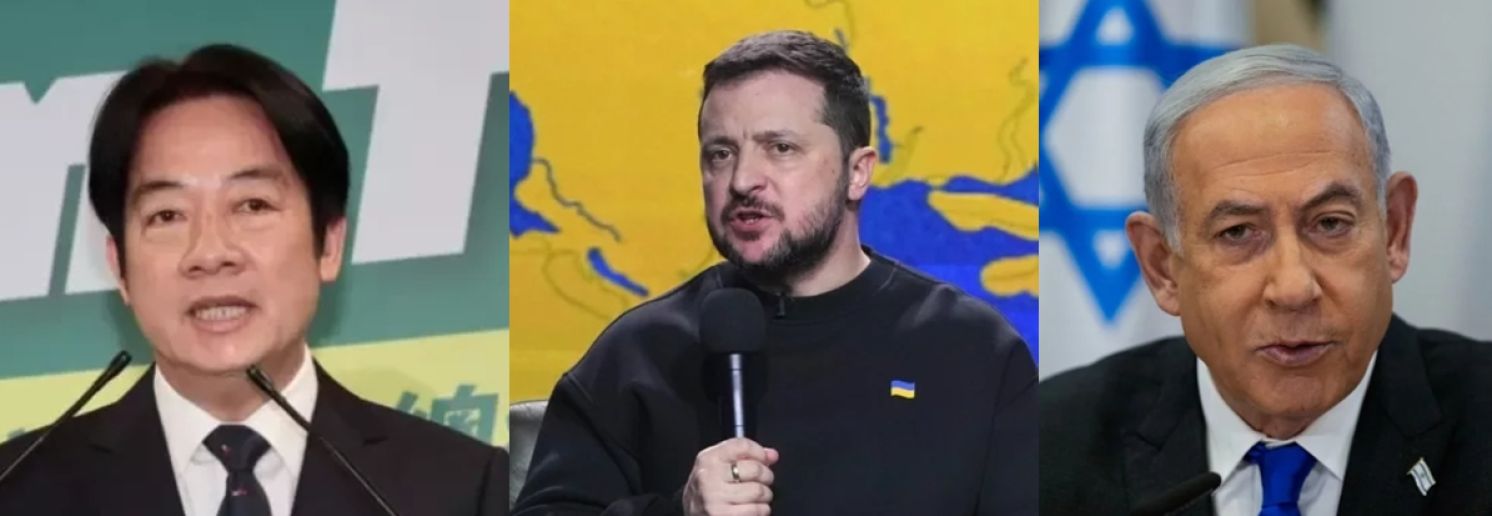
This Week in Taiwan 0107-0113
January 7: Dissatisfied with the latest arms sales to Taiwan announced by the United States on December 15 last year, mainland China's Ministry of Foreign Affairs announced sanctions on five American military industry companies. China criticized the United States for seriously undermining its sovereignty and security interests, as well as peace and stability in the Taiwan Strait. China expressed strong dissatisfaction and lodged solemn representations.
January 9: The Ministry of National Defense (MND) issued a national-level alert indicating that satellites launched by China have flown over southern Taiwan. However, the English text message was labeled "air raid alert" and mistakenly translated "satellite" as "missile," causing panic. The MND later apologized and explained that the satellite rocket passed at an altitude of 500 kilometers over southern Taiwan, and the Armed Forces therefore used the missile air threat warning system.
January 10: Eurasia Group, a global political risk consulting firm, assessed the risks this year and called Taiwan's Democratic Progressive Party (DPP) presidential candidate William Lai, President Volodymyr Zelenskyy of Ukraine, and Prime Minister Benjamin Netanyahu of Israel "dangerous friends" of the United States. The report indicated that Washington has long followed the "One China" policy while also engaging in security cooperation with Taiwan to deter Beijing from invading and Taiwan from declaring independence. However, if Mr. Lai is elected, the current instability in the Taiwan Strait may soon be tested.
January 11: The Financial Times reported that President Joe Biden of the United States plans to send a delegation led by former Deputy Secretary of State James Steinberg and former National Security Advisor Stephen Hadley to visit Taipei after the Taiwan elections. Senior officials confirmed this at a background briefing and indicated that such plans have precedents and are critical to managing cross-strait tensions and issues.
January 11: According to 2023 agricultural trade statistics, the total value of Taiwan's agricultural exports decreased by 6.5 percent compared to the previous year, while imports decreased by 8.6 percent, recording a double decline in both agricultural imports and exports. Due to the continuous impact of mainland China's agricultural product bans, the value of exports to the mainland has decreased the most, reaching 26 percent. The largest destination for agricultural exports remains the United States, followed by Japan in second place; mainland China and Hong Kong are third and fourth, respectively.
January 11: On the eve of the presidential election when the future course of cross-strait relations was uncertain, many provinces and municipalities in mainland China were reported to have suspended exchange programs for mainland Chinese students to study in Taiwan. Taiwan's Straits Exchange Foundation (SEF) confirmed that schools in provinces and cities like Jilin, Chongqing, Shanxi, and Guangxi have made relevant announcements. However, schools in Taiwan have yet to be notified by mainland China. It remains to be seen whether there will be any changes in the future.
January 12: Mainland China's General Administration of Customs released foreign trade data for December 2023. The total import and export value of cross-strait trade last year was US$267.8 billion, a year-on-year decrease of 15.6 percent. Cross-strait trade showed a double-digit fall due to a decline in the mainland's electronics exports and semiconductor imports. Another factor is U.S. semiconductor sanctions against mainland China.
January 13: The 2024 presidential election was won by Democratic Progressive Party (DPP) presidential candidate William Lai. Lai stated that maintaining peace and stability in the Taiwan Strait will be his important mission as president. He will govern under the Republic of China constitutional framework, maintain the status quo, and pursue communication instead of containment, dialogue instead of confrontation, and confidently engage in communication and cooperation with China.
In the legislative elections, the Kuomintang (KMT) won 52 seats, DPP 51 seats, and Taiwan People's Party (TPP) eight seats. Two seats were won by independent candidates.